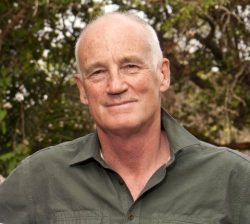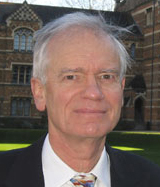
Julie Cosmidis
Associate Professor of Geobiology
Storage and Vectors: microbial composites for energy storage (Li-S battery materials)
There are about 200 senior researchers in Oxford Energy. These are listed below and can be filtered using the search bar above. You can also find the relevant contact person for a research theme by using the checkbox and selecting update.

Storage and Vectors: microbial composites for energy storage (Li-S battery materials)

Earth Resources: the global oil and gas endowment; the future of petroleum exploration; continental sedimentary basin development and resource distribution; exploration of the arctic seas.
Emerging Economies: Sub-Saharan Africa resources; the energy-water nexus.
Economics, Policy & Politics: State owned National Oil Companies, their resources and future.

Economics-Policy & Politics: Customer-utility relations, fuel poverty
Energy Networks: Smart meter rollout
Demand and Efficiency: Residential demand, energy advice programmes, consumption feedback, and social learning

Transport: Car fleet sustainability, health effects of pollution
Economics, Policy & Politics: Defining and measuring energy security
Emerging Economies: Nigerian energy economy
Demand and Efficiency: Heat exchanger networks and pinch analysis
Earth Resources: Negative emissions technologies; assessment of geoengineering schemes

Storage and Vectors: Hydrogen and ammonia storage with a particular emphasis on lightweight, reversible systems. Modelling ionic diffusion in hydrogen storage systems, batteries and fuel-cell electrodes.
Transport: Hydrogen provision for fuel-cell electric vehicles
Energy Networks: Chemical storage based on hydrogen

Storage and Vectors: chemical, nitrogen based

Storage and Vectors: Synthetic photoproteins, enzymes for shuttle manipulation, use of formic acid as a shuttle.

Earth Resources: Spark ignition engine combustion, low temperature diesel combustion, natural gas engine combustion, fuel sprays
Demand and Efficiency: Internal combustion engine efficiency
Bioenergy: Alcohol blended fuels, use of syngas in engines.

Nuclear: fusion theory, plasma physics

Nuclear

Storage and Vectors: Battery management systems
Energy Networks: Battery management systems, monitoring stress on the grid

Wind and Marine: Shock physics and hydrodynamics
Solar: Granular and heterogeneous materials
Nuclear: Ultrafast X-ray probing of extreme states
Daniel researches the ultrafast behaviour of materials under extreme loading conditions, including impact mechanics, dynamic strength, incipient plasticity, failure, Ultrafast X-ray probing of extreme states, hexagonal materials, shock-induced chemistry, and shock-energy dissipation and management.

Solar: Transparent conducting coatings for solar cells; solar chemical fuels from CO2
Earth Resources: Sustainability in the modern petrochemical industry
Bioenergy: Algae jet biofuel
Storage and Vectors: Hydrogen and ammonia storage materials

Solar: Photocatalysis

Law and Policy: Corporate Governance and Climate Change, Financial Regulation and Sustainability, Environmental Gatekeepers

Chair, Energy Research Network Steering Group, Oxford Energy
Economics, Policy & Politics: Energy efficiency and demand reduction policy, multi-scalar governance, market based instruments, carbon markets, UK energy policy, community and local projects
Energy Networks: Energy efficiency obligations and feed-in tariffs, demand response and reduction in capacity markets;
Demand and Efficiency: Energy demand in all sectors, socio-technical approaches; policy interventions.

Economics: Forecasting technology improvement, green energy transition, financial instability, agent-based macromodeling
Earth Resources: Historical costs of coal-fired electricity
Nuclear: Pros and cons
Solar: Cost forecasts

Nuclear: Chemistry of the fuel cycle elements, development of spectroscopic techniques for remote monitoring of speciation and for environmental analysis/remediation and study of minor actinide separation.
Chemistry: Informing scientific strategies and underpinning clean and green sustainable technologies that improve our environment and mitigate climate change.